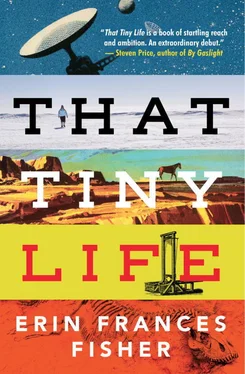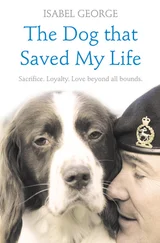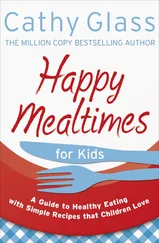They give it another go. This time the white gets her claws tangled in the netting wall. “No depth perception.”
“What’ll you tell Axel?”
Good question. Maybe nothing. What a revelation. There’s no way he will breed from her if he knows. He could take her impairment to mean her whole line will be duds. And they might be fine. “The thing is, they don’t fly the birds where we sell anyway. Too hot.”
Kendra works the netting off the bird’s talons. “She looks beautiful, doesn’t she.” Somehow, this is shocking. Kendra throws the bird again, toward the direction of the feed. “And down she goes.” She lifts the white from snow. Its wings, tail, and feet leave an impression, finger-like, like someone scooped up a snowball bare-handed. “Let’s take out a real bird.”
She settles the white back into the flight pen and lets a hawk hop skilfully on her hand. Cocoa and orange. A Harris—nothing fancy, but a hawk can manage the trees. Large, as all the female raptors are, but not as big as the white. Maybe the white’s size affects her slowness too. But let that go for now. Get hold of the rest of the day. “Lola, meet Cody.” Lola bends forward then back and fans her deeply brown, white-dipped tail and gains balance on Kendra’s fist. “Let’s hunt for real.”
MILO
The fence post wobbles easily under his push — back and forth, loose in the dirt — and breaks off at the rotten base under the ground. He lies down and, reaching into the hole, pulls pulpy chunks of wood from the soil. Face to the dirt is good. A nod of penitence. He’s relieved — ashamed about that relief but still relieved — that he didn’t drink last night. Even though he spent the night at his father’s still. Checked the boiler, loaded the wash mixed the day before (basic grain mash, turbo yeast) and started the fire. Steamed off the heads. Might as well do it right if he’s going to do it — as a test to himself. And so far he passed. Didn’t drink.
The first night in eleven months, and though his recovery prior to this latest binge was insignificant (twenty-four long days) this time the abstinence feels real. He’s finally quit.
He stands and brushes the snow from the replacement pole. Mid-winter is possibly the worst time to be fixing the fence around the slurry. He’s been planning to do it since the summer. Well, not planning, but that’s when it was obvious the fence needed to be fixed. The whole side slanted inward. If someone leaned on it, the fence would collapse and he or she’d be in a crusty mess of feces and hay scraped from the barn and mixed with runoff from the pastures. He hadn’t been able to handle the job’s smell in the summer, and if he’s honest with himself, he didn’t know how to start. Doesn’t, actually, but he can’t make a broken fence worse, can he? And right now the watery cow patties in the lagoon are covered with two feet of insulating snow and don’t smell. Digging into the half-frozen ground to replace rotten poles is giving him the workout and sweat he needs. He’s already feeling antsy and ill, got to do something to pass the time.
It would be nice if the cows were here in the pasture instead of the barn so it wouldn’t look like he was talking to himself, throwing his head back and saying, “Remember the time she was eight and you didn’t make her lunches for a year?” The whole year, that same year, he day-drank on the job with Gary, and stole a rat. Random stories. He’d forgotten. The job with Gary, bio-waste crew, was the type of job where booze and weed were okay. As long as you could mop and scrape the morgue boxes and surgical floor, you were good. He’d been cleaning animal cages in the research wing of the hospital, saw the rat, and he tucked it in his shirt pocket for Melanie.
A research rat. What can he do but laugh? Especially now that the first step is made: he stopped drinking. Second step — how to get her back to school. Maybe she’ll go by herself — there’s still a chance.
He jostles the new pole in the frozen hole. The metal’s sturdier than the wood was but the pole tilts. The hole is too big. Maybe cement when the weather gets better. Way off in spring. Shit. The edge is wearing off his motivation. That’s the last replacement for today.
He dusts the snow from his toque and looks at what he’s done so far — taken down the fence but not put it back up. Propped a couple poles in the dirt. Anyone could walk through and step into the slurry. Right now, with the pristine snow covering, they wouldn’t even know it was there. The only structure is the ramp with its metal gate. He should have left the fence alone. Now it’ll have to wait. Anyway, they probably need a whole new pit. From the notes and supplies Austin has lying around, it looks like his father planned to replace the lagoon with a more modern cement structure, complete with a pump and an agitator in the base. Starting mid-winter is ridiculous for that much work. He’ll do it, but in the summer. It can wait.
He pulls a tarp over the pile of dismantled posts and rails. The clouds, white with a wash of steel, dropped down the mountainside this morning and boxed the farm in.
“Hey, Dairy,” Kendra calls from the fence between properties. The snowfall interrupts the view even from the pit to the fence, and he squints to see her clearly as she heads over from the mewses across the pasture. The boy from yesterday follows her. Maybe fourteen? Melanie’s age, if he’s right. He carries a hawk on his arm. With a kilt and a bird and dark hair slicked wet over his head the boy looks like he’s ready for a photo shoot — one of those ones from the TV make-over and modelling shows Melanie watches — until they get closer and it’s apparent the boy is, if not miserable, ninety-percent apprehensive.
“Fixing the fence?” She has her SLR camera in a clear plastic bag slung over her shoulder. Her vest stuffed with dead chicks and what look like sandwiches.
“Good day.” He says it staring at the hawk the kid’s holding. Good day? Sounds like he’s chatting up the bird.
“Not even close.” She points to the highway. “Trucked it into the ditch.”
“Didn’t expect you.” He crams a corner of the tarp under a pole. “Thought, after Melanie yesterday . . .”
“Not my business,” she answers.
What she’s really saying, what she must be saying, is, Not my problem. He swallows the urge to tell her he’s stopped drinking.
“Your tractor up and running?” She heads to his garage. He follows her and opens the door. The garage shares a wall with the barn and is an expansion built by his father for the tractor and for his father’s baby, the still. The still isn’t massive — eight feet high including the copper boiler, pipes, and chambers — but it’s a good size, and imported. Blessedly simple to use, as he found when he and Melanie arrived: day before, blend a neutral grain spirit, purified water, botanicals if he’s being fancy, and let it steep overnight. Next day take the wash and get the still boiling — fired by sawdust bricks. Takes a couple hours, then boil the alcohol off through different chambers and the condenser. That’s it — spirits flow. Monitor heads, hearts, tails. His father used a bottler, but that’s too much effort. Mason jars and jugs from last night’s distillation sit on the floor between the still and the tractor.
“I’d have to search out the keys. Clear the snow. I don’t know, with this weather—” he steps over the Mason jars and flicks dried hay and manure off the back tire. Allis-Chalmers 185 with a three-point hitch, orange. Fifteen or twenty years old, but an upgrade from the tank that his old man had before. Some dings, all his. He rubs a dent in the hood.
“Shit,” she says.
“Tomorrow.” He kicks hay off the floor drain. The boy, holding the bird, stands on his toes and peers in the still’s boiler window. “Don’t touch that.” The boy jerks back. Kid shouldn’t even be here — should see this. Hellsake both of them smell of wet feathers, the boy of feather and wool. The kid’s face is pink, no, wait, red now after that reprimand.
Читать дальше












